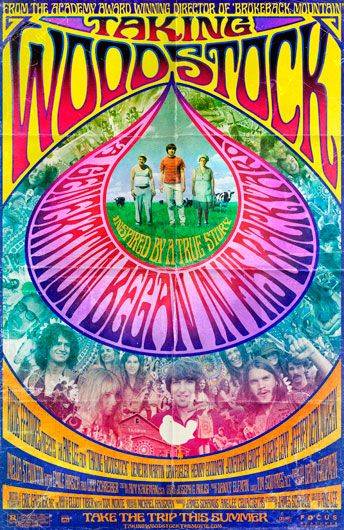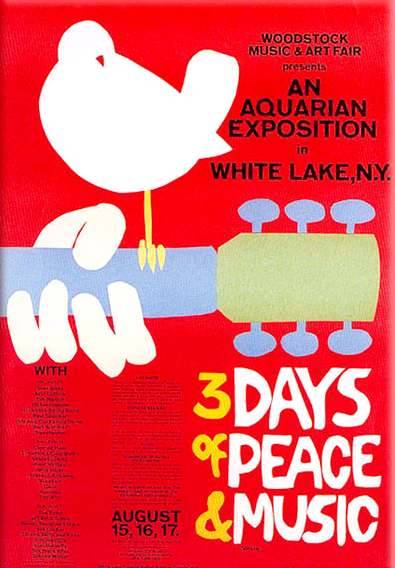 Forty years ago a group of young people from all over the country arrived in Bethel, New York to attend one of the biggest concerts of the summer. It would turn out to be one of the most iconic events in modern music history.
Forty years ago a group of young people from all over the country arrived in Bethel, New York to attend one of the biggest concerts of the summer. It would turn out to be one of the most iconic events in modern music history.
The Woodstock Music and Art Fair was a three-day long jam fest featuring the most popular acts of the day including Arlo Guthrie, Joan Baez, Santana, the Grateful Dead, Creedence Clearwater Revival, Janis Joplin, The Who, Jefferson Airplane, and Jimi Hendrix. To call it a big event is an understatement.
But what made this concert so different from all the subsequent rock concerts and even major concerts of today like Lollapalooza in Chicago, Coachella in California, and Bonnaroo in Tennessee?
To a 15-year-old, Woodstock seems like a heaven on earth: a free concert with some of the best bands that have ever been assembled together.
Hello? Am I the only one jealous that I wasn’t there?
Sadly, I’m 40 years too late. To put this in perspective, my dad was only 12 when Woodstock occurred. What a drag, man! Today’s youth who really appreciate music would give anything to go back to the ’60s and listen to real musicians, instead of half-assed attempts by mediocre kids in their garages.
Although there are good artists who are pushing boundaries of comfortable music. nothing can compare to the break from the conventions of the ’60s. An explosion of creativity and expression burst out from the hills of upstate New York, rebelling against not just art forms but a way of life.
Using drugs, sex, and rock’n’roll, the hippies became the face of a generation determined to “change the world.” There were many concerts showcasing some of the top talent of the time both before and after — including Monterey Pop Festival in ’67, Newport Pop Festival ’68, and the Newport Jazz Festival of ’69 — but no festival came close to Woodstock.
 “Three Days of Peace and Music” is how it was promoted and no one could pass that up. Even though at first tickets were being sold, the concert ending up becoming free and, along with the 186,000 who already bought tickets, estimates have put the count somewhere around 500,000 people attending. It was a sea of humanity coming to the small town of White Lake that had a population of less than 5,000.
“Three Days of Peace and Music” is how it was promoted and no one could pass that up. Even though at first tickets were being sold, the concert ending up becoming free and, along with the 186,000 who already bought tickets, estimates have put the count somewhere around 500,000 people attending. It was a sea of humanity coming to the small town of White Lake that had a population of less than 5,000.
With that in mind I was looking forward to see U of I alum’s Ang Lee’s Taking Woodstock. To my surprise, though, the movie was less about the music but more about the story of locals in the area and how this concert affected their lives.
Elliot, played by stand-up comedian Demetri Martin, is a young ambitious man who works at his parent’s hotel, the El Monaco Resort, and feels that he is destined for something bigger.
When he hears of a concert with some of the biggest artists of the day failing to score a valid festival permit in a neighboring town, Elliot contacts the concert organizers and offers up a valid permit that he had acquired for a much more modest event that was to take place with local theatrical talent and DJs. In performing the sleight of hand (at first unbeknownst to his fellow Bethel citizens) Elliot does not fully comprehend how his desire to help will fundamentally change the town. Most of the locals hate him for bringing over half a million hippies to their town while others like his parents are overjoyed with the incredible boom in business.
This is not a fantasy, this is the true story of Elliot Tiber as translated to the screen from his 2003 biographical memoir also titled Taking Woodstock. Ang Lee is able to take Elliot’s story and turn it into an incredibly funny and visually beautiful film.
Mike Ross, director of the Krannert Center, when asked how Woodstock changed the face of popular music, said:
“The festival was the pinnacle of the ’60s artistic revolution. If you look at it only at a music standpoint then yes, you have a ton of great artists, Janis Joplin, the Who, and of course Jimi Hendrix, but it was so much more than a concert. It was more about a movement than it was about any artist and it showed the entire world what this generation was all about.”
Not only is the movie a perfect snapshot of my parents’ generation, but Taking Woodstock gave me a whole new view on the music that I love and listen to on a daily basis.








